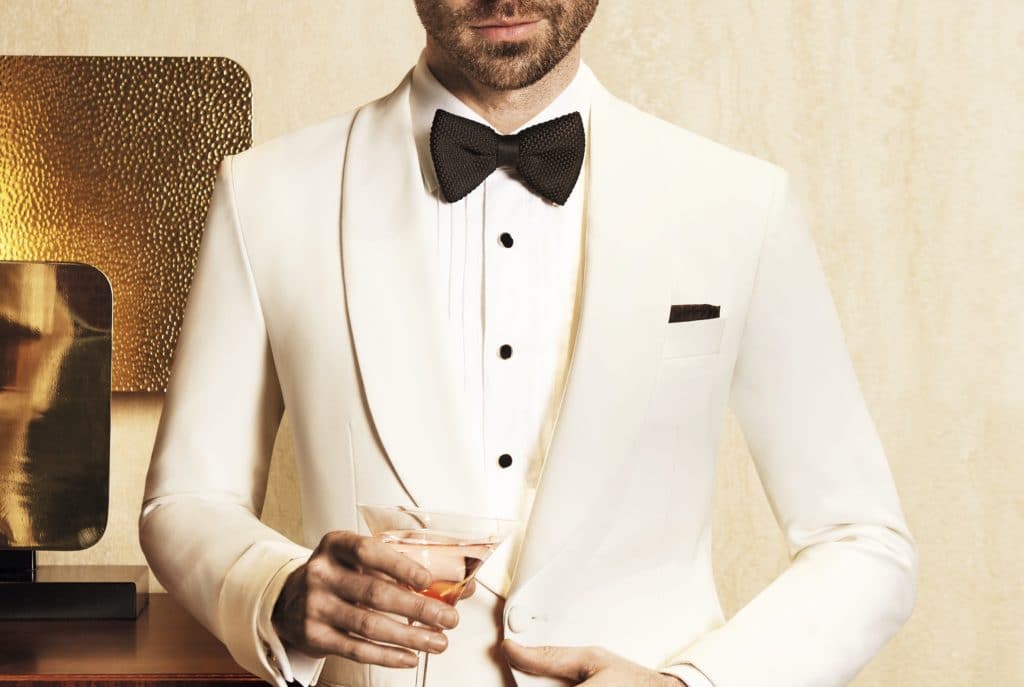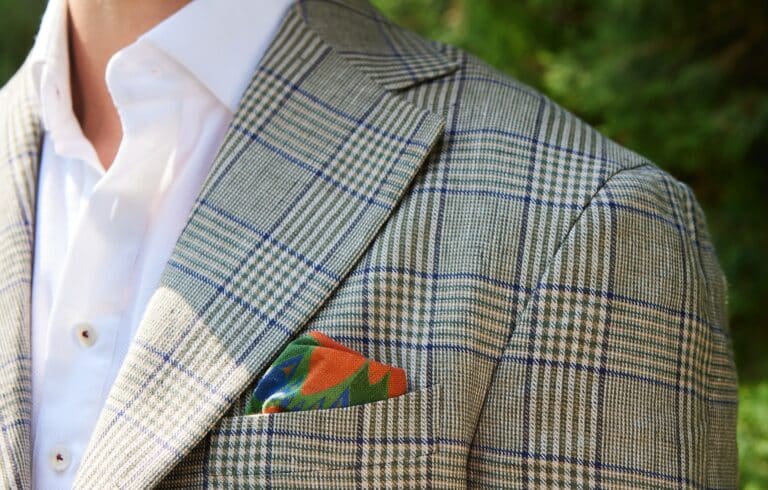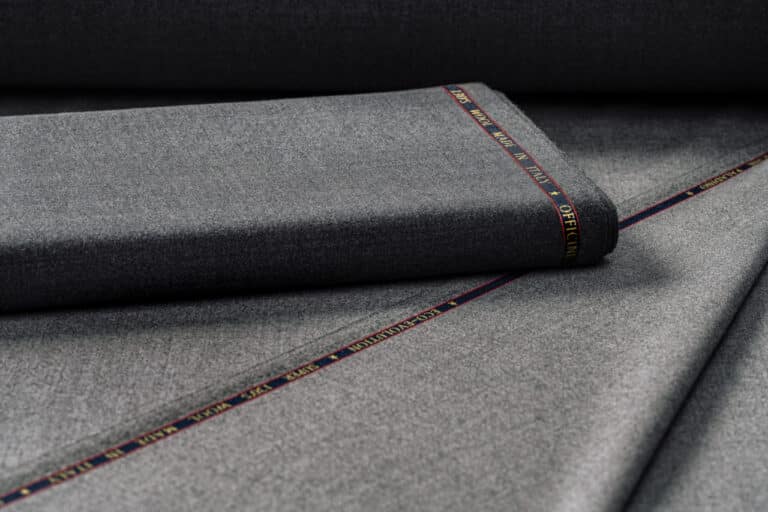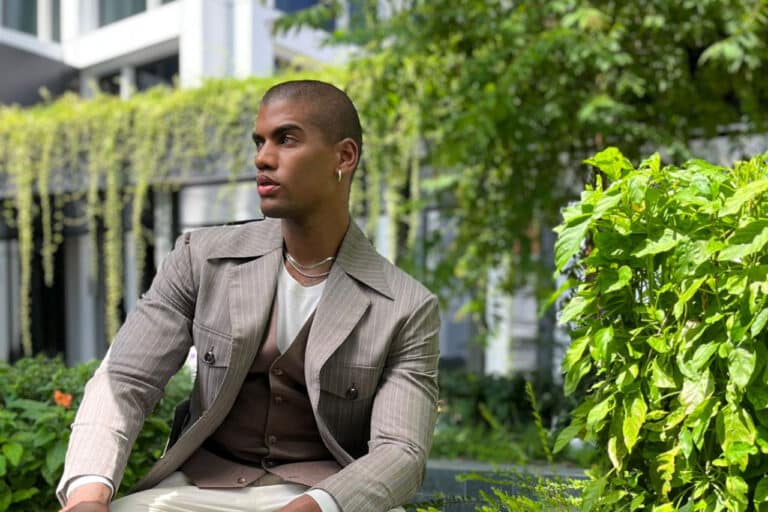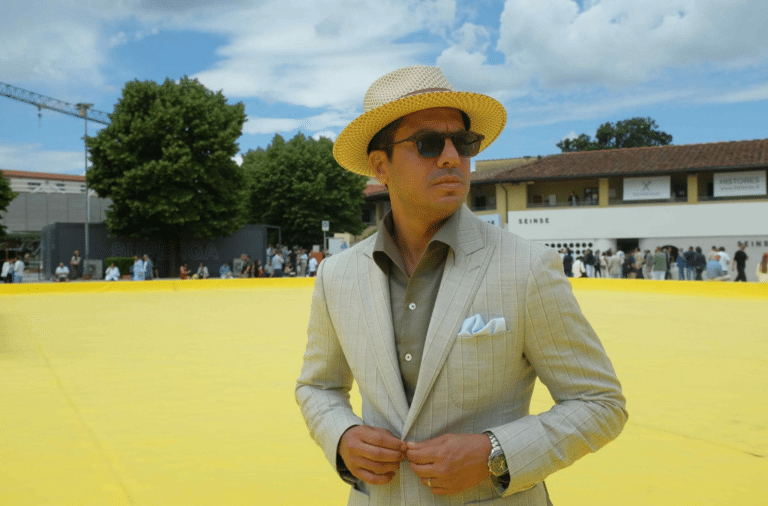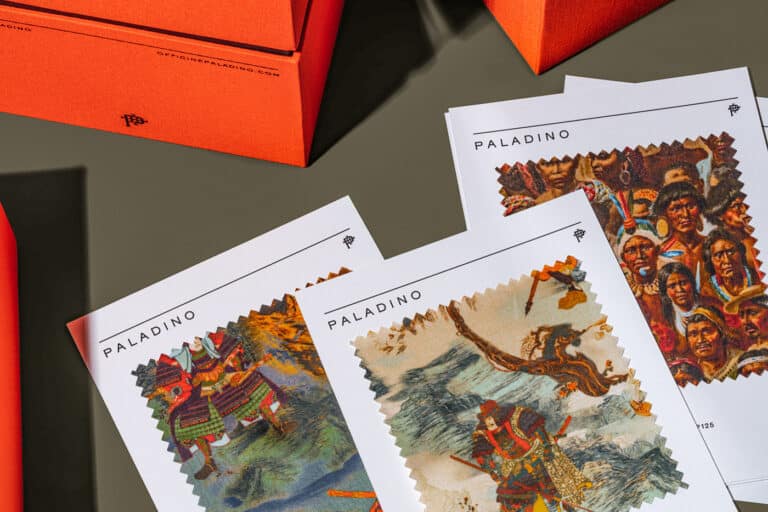The history of the tuxedo is tied to high society in New York and Paris, and Savile Row tailors Henry Poole & Co. In 1886, Pierre Lorillard IV founded the Tuxedo Club in the eponymous town. It was a prestigious country club with a social calendar that included formal and casual events. In that same year, Henry Poole had created a dinner jacket without tails, for customers who wanted a slightly less formal outfit. The “smoking jacket” was copied by the members of the Tuxedo Club and became popularised.
The tuxedo comprises a white dress shirt, bow tie, dress pants, dinner jacket, dress shoes, and optionally a vest or cummerbund, along with a hat and a pair of gloves. The dinner jacket is of course the critical piece in the ensemble that pulls it all together. If you’re making your next tux, here’s what you should look out for.
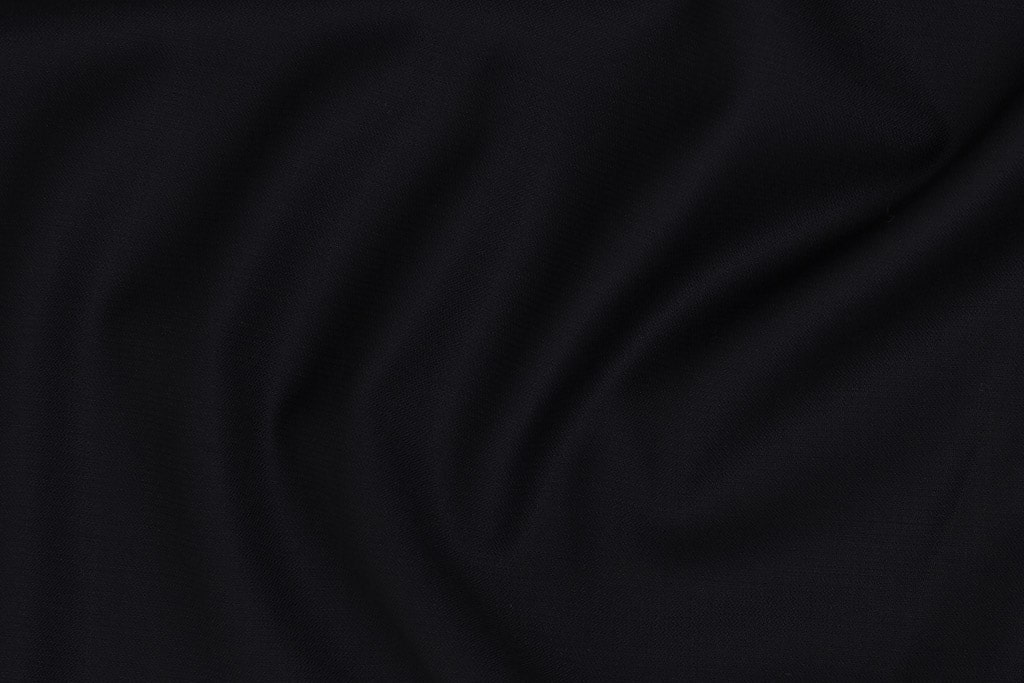
Formal wear demands a high quality fabric such as Navy OP 2051 from our Luna collection.
Start with the fabric
A formal jacket needs a high-quality fabric. We recommend a high-quality wool in a faille weave for tuxedo suits – a plain weave with cross ribbing that creates a silky, lustrous texture. This ensures comfort with a very soft touch that still drapes well on the body. Typically, tuxedos are in black or white, with white being the more formal (according to white tie dress codes). However, today, tuxedos are more flexible and individual preferences see people wearing everything from eggshell to deep blue to jet black or even a blue glen plaid with our Olympique OP 2115 as shown below.
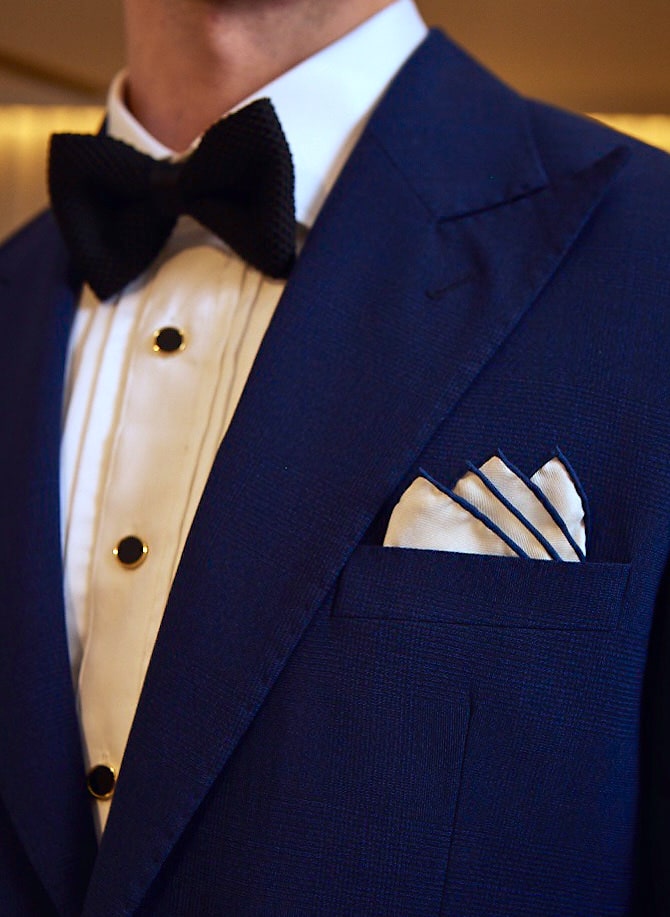
Choose between the shawl or peak lapel in a dinner jacket. Shown here is Olympique OP 2115.
Start with the lapels
In the past, peak lapels were the only approved look for formal dinner jackets. However, shawl lapels (associated with loungewear) have become popular as well. The shawl lapel offers a more relaxed style to the tuxedo, giving it a comfortable, yet elegant appeal. The peak lapel adds formality and shapes the look of the jacket more clearly. Depending on which you prefer, we’d recommend the peak lapel for gents with broader shoulders and the shawl for relaxed builds.
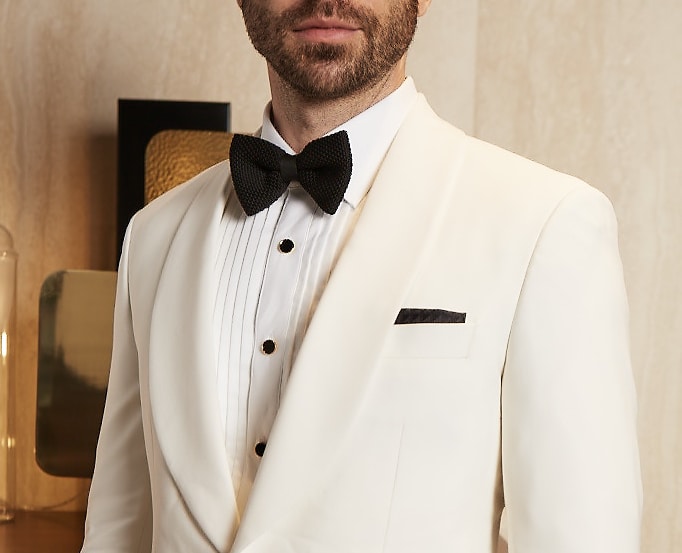
The shawl lapel is a modern take on the dinner jacket, with a softer, more relaxed silhouette. Shown here is Bianco OP 2050.
Single or double-breasted?
Whether you prefer the single or double-breasted dinner jacket, both are equally sophisticated. The single-row tuxedo reveals more of your tuxedo shirt and buttons than the classic DB. Do note that tuxedo jackets don’t have vents at the back as tradition requires, so they tend to fit snugly over your physique. When made well, both are equally dashing. The buttons on your tuxedo jackets are cloth buttons to match the fabric, or if you’re feeling bold, consider a different type of button.
The tuxedo pant
The tuxedo pant is typically a straight or tapered leg with a strip of satin lining down the sides, without belt loops. To adjust their fit, side buckles and cummerbunds are the best options. Having a turn-up on the pant leg is entirely up to your preference.
Our selection of wool in our collections, especially our Luna range, is designed for formal wear. Try creating your own tuxedo using our Styling Tool and realise it with our partner tailors. For more ideas on designing your own tux, check out our lookbooks.

